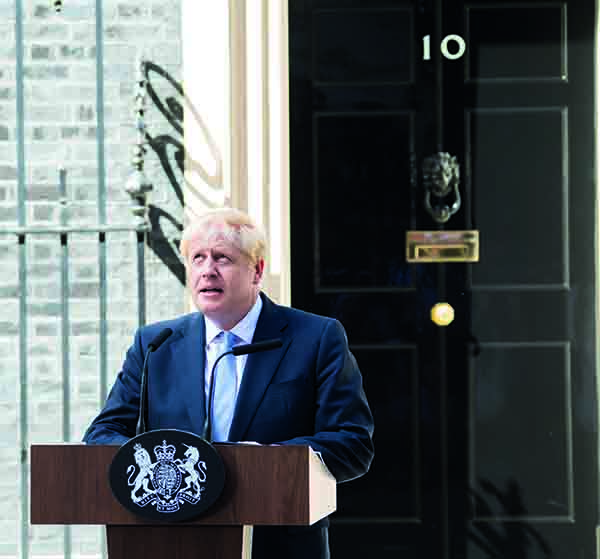Ed Barker is a senior policy adviser at the NPA. He previously worked for rural business advisers Cheffins, and the Country Land and Business Association
With the whirlwind overhaul of the Prime Minister, the Cabinet, junior Ministers and advisers, we are suddenly looking at a very new and different platform for Brexit.
Despite Boris’s overtures that a no deal would be a ‘one-in-a-million’ event, the Government seems to be taking an active interest in its likelihood. If Boris is still offering those odds, then it would be worth putting a pound on it.
The EU has been keen to stress that it is not moving from the original agreement made with the UK Government last year, despite a new Cabinet team in the UK and many new faces in the European Commission and Parliament.
In fact, attitudes in both the EU and Republic of Ireland seem to be crystallising to the extent that many are coming to the view that their original offer was generous. Sadly, one can only assume that both parties are going to try to engage in a game of chicken right up until the end of October.
This is clearly of little help to businesses that are simply trying to make future decisions and understand what impacts may take place in the short term.
What do we know about a ‘no deal’? Well, the Government’s tariff schedules that it produced earlier in March are still unchanged, meaning they would be ready to kick in once again in the event of a no deal.
For us in the pig sector, it is hard to accurately explain what it would mean – we know that European imported products would have some costs put upon them by tariffs and possible friction at border points. Given that they will have been used to total free trade, it could be quite an adjustment.
But the UK could not discriminate from which country it imports under a no-deal exit; this means that the US would have exactly the same access to the UK market as the Dutch or Danes, for example, with the same tariffs.
However, we know that the UK would apply the same standards as the EU does, which would, in effect, only prevent the use of ractopamine on imports, and would not be able to restrict products based on animal welfare grounds. Analysis from AHDB has shown that the US would comfortably be able to absorb these tariffs and shipping costs, because of the low cost of production.
We know that the EU would apply full tariffs on UK exports to the EU and at the full rate; these would be prohibitive to the point of making any export trade unviable.
Losing half your export market as quickly as that is inevitably going to have huge knock-on effects to processors and producers who will have to find other avenues for cull sows, offal and less favoured cuts.
Therefore, we will have to look at no deal as a set of different, competing issues all within a political and economic environment that is totally untried or tested by any modern economy.
All we can do is to keep haranguing our politicians and work with other sectors to ensure that we have continuity of trade and a clearer trading future, and this is what we will do right up to November, and beyond.




